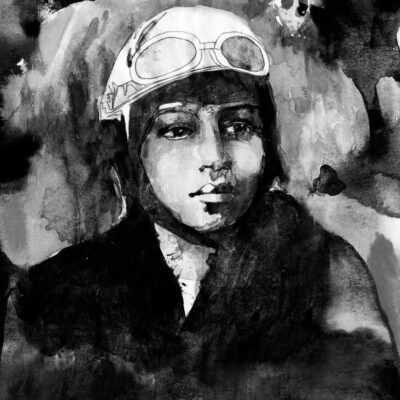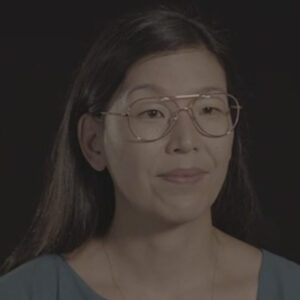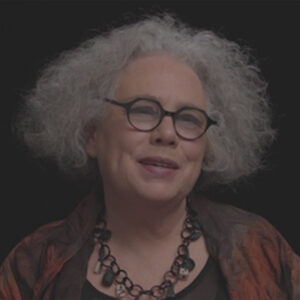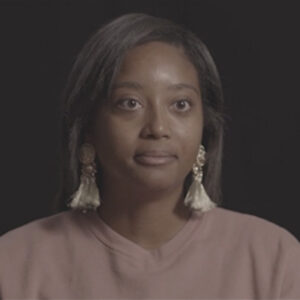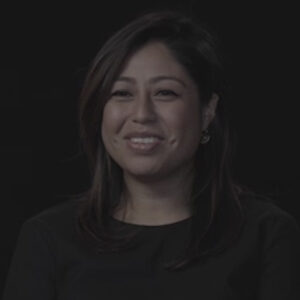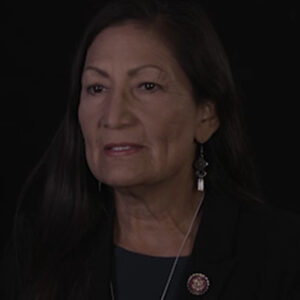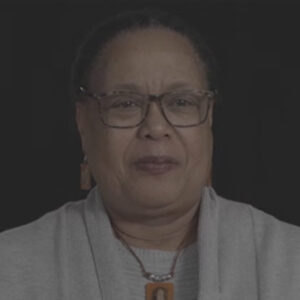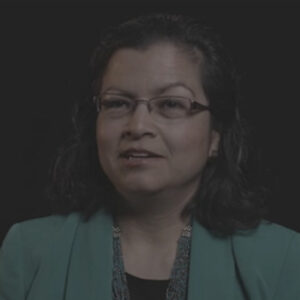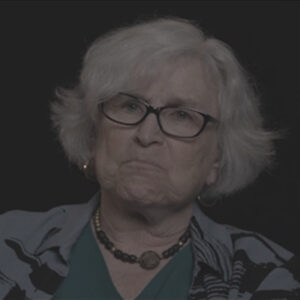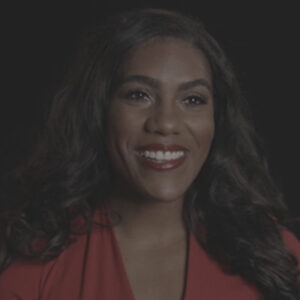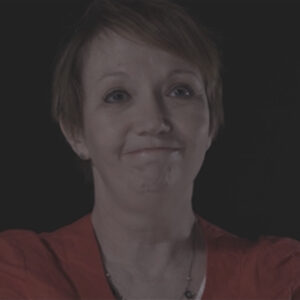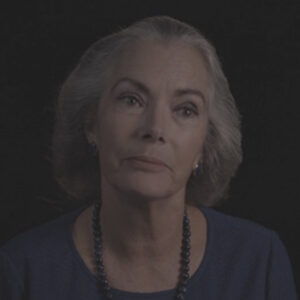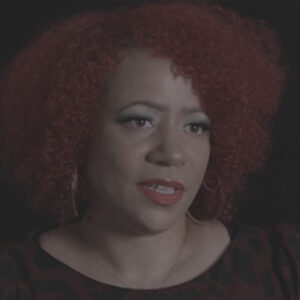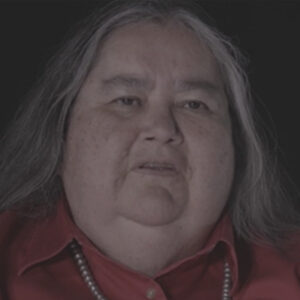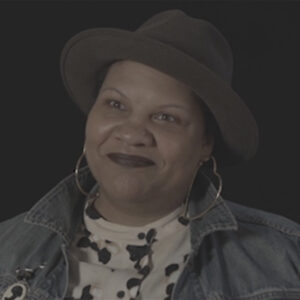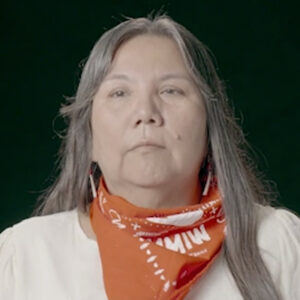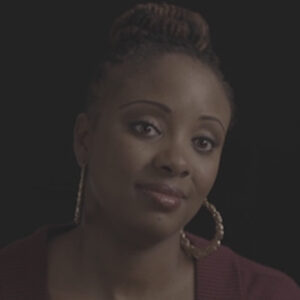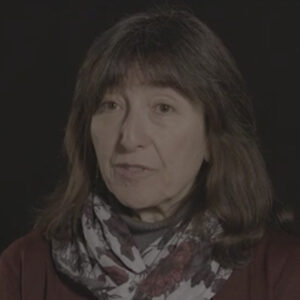Speaker I am Britney Pakman, I’m an activist and educator and a writer and obsessed with justice.
Speaker That is so wonderful because you’re working on so many platforms. What is it that inspired you to kind of do those things are interrelated. How do you see those mutual support?
Speaker You know, Audrey Lorde once said that there are no single issue struggles because we don’t lead single issue lives. It’s impossible for me to care about education and not also care about housing. It’s impossible for me to care about housing. And I also care about employment and a living wage. It’s impossible for me to care about a living wage and not care about someone’s health care. The truth of the matter is I am committed to the belief that everyone can thrive.
Speaker Right now we’ve got folks who are scratching and surviving and that just doesn’t have to be the case. And so if I want people to thrive, that means I have to see people in their fullness, then I have to support people in their full wellness. So for me, all of these things police violence, education, racial justice, gender, justice, all of these things are deeply interconnected because until we figure all of them out there, no one is thriving. And until all of us are free, none of us are free.
Speaker Everywhere is church.
Speaker So we talked earlier about, you know, you as all of us were impacted by Michael Brown and the unfortunate circumstances relative to his life being cut short.
Speaker So we know that that was a catalyst in a lot of ways to in your journey. That was the singular thing in addition to me, is that you really did spark, you know, clarity.
Speaker It’s interesting because I call myself an activist and educator because I was raised by an activist and an educator. My mother is a social worker and worked in K-12 education. And in higher ed, she started the very first office of Multicultural Relations at our city’s largest public institution.
Speaker She was committed to making sure that equity existed in the classroom and that people of all colors can have access to every opportunity upon graduation. That my dad was a pastor and a liberation theologian. He was the first one to put a sign in my hand. He was the first one to wheel me at a protest because my first protest, I was in strollers and I was raised with with particular images and particular stories being told to me. When other kids were watching Disney films, I was watching Henry Hampton’s Eyes on the Prize. This is not a joke. We owned the entire box set on VHS, which means that somebody like one of my parents picked up the phone and dialed PBS. Right. And gave them their credit card information over the phone to order it by over mail, through snail mail. And there was no just kind of turning it on on Netflix. Right.
Speaker So there was a real commitment in our household to ensuring that the people that we knew, the Christ that we worshipped, the stories that we were familiar with, or stories of liberation where people who were liberators. And so in some ways, I was I was raised in this work. This work is the family business. And it was always going to be up to me to determine exactly how I made a contribution to justice work. But there was no question that I was expected to make a contribution to justice work.
Speaker So I started off my formal career as a teacher. I’ve done work on Capitol Hill, I’ve done advocacy work. And when I found myself on the streets in August 2014 in Ferguson, it was because I know that doing work from behind the desk matters, but getting out from behind the desk and being proximate to the struggle is where the real work happens. So I found myself returning to my roots in those moments and trying to take the voices of the students that I serve every day with me.
Speaker As soon as we we’re going to be like and that was specifically because we are looking at a historical period. There was a hundred years ago it was a woman, actually, Bryant, who made a statement and said, I do not want to be to live life in terms of gender norms and the expectations of whatever that lady like in the world. And so I was watching it. Ted, talk. You did. You were talking the Revolutionary Council. Yes. Talking about these kind of new prototypes of leadership. And in some ways, I feel like that’s really what we’re focusing on. Right.
Speaker So one of the things we’re asking everybody to do is to really just your own personal definition of ladylike and what that means for you in terms of, you know, how would you manage this?
Speaker Your who is the most authentic self, you know, of your world as well as in your personal space being?
Speaker That’s a great question for me.
Speaker Being unladylike is really recognizing the revolution in your authenticity. I recognize that my being here, my talking to you, my doing the work that I do every day doesn’t fit the status quo. It doesn’t fit the set of expectations not only that are placed in front of women, but women of color and black women in particular. And so I recognize that every day I wake up and decide to keep at this thing. My existence is a form of resistance that every time I choose to be my full self, I am standing and bucking traditions that people would rather me abide by, because then I’ll be more quiet, then I’ll be more silent. Then I’ll be much more ladylike and do the things that are expected of me instead of do the things that are best for me. And so I am. I’m fully committed to this idea of being unladylike, of being a lady means I’ve got to sit in the corner somewhere and be quiet and never raise my hand, never speak up, never shout, never run, never sit in, never stand up. I’m fully committed to to being unladylike, if that’s what being a lady means.
Speaker So it’s interesting that you pursue education and activism and we are focusing on who was doing that quite some time ago. Mary Church. Terrell was an educator and activist and author, all things all the same conspiracy to working in.
Speaker And she also really mobilized people and mentors young people as well.
Speaker She gave speeches advocating for African-American women, for suffrage, you know, some sit ins, etc.. So can you briefly tell me how you are seeing yourself active in all of those fields, such as, for example, as vice president of the National Alliance of the Teach for America? Tell us a little bit about the mission of that organization.
Speaker Yeah, well, you know, what’s so fascinating is I taught third grade at Martin Luther King Elementary School in southeast D.C., right around the corner from Mary Church, Terrell Elementary School. And I remember going there as a teacher, and that would be the place where the District of Columbia public schools would supply our ward with extra supplies. So this would be the big field trip that the teachers would take every quarter or so to go get extra supplies.
Speaker And not being a native of D.C., I’m like, you know, I’ve heard this name, but I don’t think I know enough about it. And especially throughout the course of my life thus far, I’ve come to realize that I am walking a path that Mary Church Terrell created that I would not be if it were not for her, that this idea of combining the revolution of the classroom and the revolution of the streets had not really been done before her and a few other folks like Septima Clark and so many others.
Speaker So I’m grateful for her example and her legacy because it has it has given me the power and the ability to exist in the way I do. And the work I do every day is really committed fully to the idea that all children in this country deserve access to an equitable and excellent education period. End of story. Not some children, not just these kids over here, not kids in a certain zip code, not kids that live in the right ward or the right section of the city. All young people deserve access to an equitable and excellent education. So that’s what we do every day. And working with directly, with students, directly, with communities, directly with parents to make sure that our practices as teachers, as educators and school leaders, as advocates is well informed by the communities we serve and to to demarcate or try to create distinctions where they may not be in shortly after.
Speaker You’ve got about these different should we go forward, which we do so with the reflections of the Ferguson Commission and the task force on 21st century, there is so much that I think we as a nation can be grateful to for that these efforts have come to at least reduce the level of understanding. Yes. About police community relations and where the media coverage is so that you feel like having done this work, that you have really observed some progress. Do you think there’s better communication? No, I think there’s more sensitivity and still certainly interesting conversation.
Speaker Yeah, it depends on the day.
Speaker You know, when I join the Ferguson commission and then later President Obama’s policing task force, it was to help try and be a bridge. I was clear with both the governor’s office in Missouri and the Obama administration that if the expectation is that I join these commissions, this task force, and therefore stop being a protester, then you should go and find someone else. Thank you for the honor of being considered, but you should go find someone else, because my responsibility is to make sure that my community is heard and my community is heard in the very places where decisions about our future are being made. So the ideas they have should be present at the table. The hopes and dreams they have should be present at the table. And the reports that we put out from the Ferguson commission and the task force have continued to move the needle. But what’s important to. Agonises, that’s not the whole ballgame. It took us centuries to get into the position where someone like Michael Brown Jr. would be walking in his own neighborhood to his grandmother’s house and be shot and killed by a police officer. So it’s going to take us quite some time to move and get ourselves to a different reality. But that doesn’t mean that we shouldn’t be careful about each step. And so what both of those steps were, were about creating awareness, but also about creating specificity about what we can do. It’s about ensuring that it’s not just having basketball games with the police officers in your neighborhood or them coming through with an ice cream truck. These things are nice, but they don’t solve the problem. They don’t solve the problem because they don’t get at the systemic issues that are present. And so these reports clearly elevated the voice of the people. And we’re specific in what the solutions can be. It can’t just be about body cameras. It also has to be about privacy, because we have to make sure that if you’re coming into my home or my community with the camera, that I know what you’re going to do with that footage and that you don’t use it to later entrap me. I have to make sure that the kinds of investigations that happen after a police involved shooting are independent and external to the community I live in because the police shouldn’t be policing themselves. We have to make sure that citizen’s review boards have real teeth and have real power and authority in the community, not just to call out the issues, but to discipline the officers that are carrying out the issues. So these are the kinds of things we’ve seen in those reports. And they’re a step. It’s about making sure that police departments, mayors, governors and presidents take a look at what those recommendations were, get those things done so that we can move on to the next step.
Speaker So I’m also just going to ask you about two other areas. Sure. One is campaign zero. Yes. And the other one is basically about voter suppression.
Speaker Yeah. So campaign zero, we believe that we can live in a world where the police don’t kill people.
Speaker And we intentionally didn’t call this campaign 50 percent or campaign Fuehrer’s campaign zero because we fully believe that just like other wealthy nations, we can live in a country and more broadly in a world where the police do not kill people, where this is not a foregone conclusion. And so that’s what we believe. And we’re committed to the idea of making sure that protests and policies stand side by side in the work that we do. Protest creates the crisis that forces power structures to negotiate. And therefore, when we sit down to negotiate, we want to be the ones in control of the policy that we hand them. We want to be the designers and the architects of our future. So that’s what Campaign Zero is about. It’s about looking at all of the policy areas from being able to film the police to police accountability and also to use of force and police union contracts. We want to look at every single thing that has contributed to this current situation and make sure that we’re addressing all of them from our own perspective, from our own wills and through our own eyes.
Speaker So as you may know about Mary Church, Terrell, she is she was a very interesting person and in that she, um, operated in so many different areas of activism. So one of the things that she did was to really try to build a bridge with the white suffrage movement and to try to make sure that Anthony Munchak opposing lynching. Yes. Was really part of that agenda. And she didn’t necessarily get a lot of traction.
Speaker So she calls it the death of your friend.
Speaker And and so there’s, you know, very important major suffrage demonstrations here in Washington organized, which was considered to be kind of one of the culminating events that led to the legislation being passed. And and Mary Church, Terrell was part of that demonstration. But there was a section where black women were basically in the back of the bus. And so there’s been like a steroid issue in the activist community relative to. Yes, kind of how are we collaborating? You have that freedom from positions of of shared power. Yeah. So would you say that from your perspective that the politics of race relative to women of color, African-American women and white women really working together in the justice space, do you feel like there’s been progress in that area? Do you feel supported, more supportive than definitely the manager?
Speaker Sure. It’s Terrell, right? Or is it Terrell? It’s Terrell. OK, I just want to make sure I’ve been saying Terrell. Terrell got it.
Speaker You know, it’s so funny because.
Speaker The Susan B. Anthony I learned about in the last few years is very different than the Susan B. Anthony I learned about when I was in elementary school and when I sat and read.
Speaker That she said, I’d rather cut off this right arm of mine than to fight for the vote for the Negro and not the woman, I was pained, but I wasn’t surprised because. Operating.
Speaker And collaborating across lines of difference for the sake of justice requires us to share power. If you’re not used to sharing power sharing, it can actually feel like you’re losing it. And most people don’t want to give up the little power that they have, especially if they’ve been dealing with oppression, because women of all colors, especially during that time, were dealing with oppression. They were dealing with the loss of their voice.
Speaker They were dealing with their inability to go to the ballot box. All of that was real. But that doesn’t mean that it was only real for Susan B. Anthony was also real for Mary Church Terrell. And on top of not being able to go to the ballot box, she’s dealing with racial terror. Right. So that’s how we have to understand the importance of the lens of what Kimberle Crenshaw calls intersectionality, that we actually have to be willing to look through the prism of the ways in which different systems intersect in someone’s life because of all the identities that they hold. So white women experience oppression differently and on a different scale than black women do, who have to deal with racial oppression and and gendered oppression. And what black women deal with is different than what Latinas deal with because of the unique stereotypes and the unique systems that conspire differently for a Latina woman than they may for a black woman. It’s not about more or less between them, but it’s about recognizing the unique ways in which they are suffering and therefore the unique solutions we have to build so that each woman can thrive. And this is something that I think modern day feminist movements are starting to understand. We’re starting to say, hey, look, if your feminism is an intersectional, then I don’t want it. But what does that look like in practice? Because it sounds great to say it looks great on a tweet, but what does it mean to actually live that out? I have experienced highs and lows when it comes to this. I have experienced white women who really want to listen, who really want to make sure that they’re not only not being in the way, but that they’re being helpful. And even if that means they have to take a step back, that they have to do some more learning, some more listening, that they have to provide resources in a different way. I have met some white women who are really committed to operating in that way, to operating in a way that doesn’t erase the needs of women of color. And then we also see what the election results were in 2016, where 53 percent of white women voted for one candidate and over 90 percent of black women voted for another candidate. So clearly, we have very different visions about the future of America across that line of difference. And even though black women and women of color were very clear that the person that 53 percent of white women ultimately voted for would be deeply harmful to our communities, they went ahead and went in that direction anyway. So those are the moments that make you stop and question just how intersectional are we ready to be? Just how ready are we to collaborate? Just how ready are you to share power with me? Because you may only have a little bit and you might be too afraid of what you can lose.
Speaker So you said that.
Speaker As a teacher, especially going to church, Terrell’s school, yes, well, yeah, you do have an understanding of this woman and her life.
Speaker Yeah, sure.
Speaker Thanks was I might have pulled it. OK, thanks. OK, I can also go home on let me take this after it. Just I don’t want it to click for you. OK, here we go.
Speaker So how would you characterize or how would you describe her work as?
Speaker And as an educator and writer, I mean, again, looking at those three areas and the areas in which you also acted.
Speaker What do you think about the, you know, the the legacy issues that.
Speaker This is what I love about Mary Church, Terrell, is that she saw no limits, you cannot put her work and her contribution to the world in a box. We like to brand people. We like to think that people are only capable of doing one thing in one way for one group of people with one group of people.
Speaker The truth of the matter is she broke through all of those barriers. So she understood that the classroom should be the first line of revolution. She understood the power of the multiplier multiplier effect. As an educator, that I can be a revolutionary, but I can also get 30 kids to be a revolutionary, and then they can go get their friends to be revolutionaries and they can understand the power they have to change the world they see. So she got that part. But she also understood that you had to leave the classroom sometimes and sometimes you got to go sit in at a segregated lunch counter. Right, to actually put your body on the line for justice. Sometimes you have to establish the infrastructure so that people can get together and do the work in a collaborative way. So when you think about the nationalists, so when you think about the National Association of Colored Women and that idea of lifting as we climb I think is so powerful. They’re right. It’s to say there is no success if our people don’t come along with us. There are no heights we can reach that are worth sacrificing the wellness of our neighbors, of our community. And so I think what is so powerful about her legacy is that it is limitless, and that is that it touches so many different issues, so many different communities and touched people in so many different ways. She was unladylike and that you could not limit her to just one thing or one tactic. She understood the power of all of it. Personally, I absolutely feel a personal connection. It’s interesting because when people ask me what I do, I say I do justice work because the platform doesn’t matter to me. It might be the podcast one day. It might be campaign zero. Another day it might be my work in education. Another day I might be a speech I’m giving on another day. But the message is consistent through all of those, the messages that everyone deserves to thrive and therefore we have to create a just world. The platform doesn’t matter. The work is what matters. The consistency and authenticity of the work is what matters. And that’s the path that Mary Church Terrell laid out for me.
Speaker It’s interesting that you mention that. Lot of calling for the National Association of Colored Women, lifting as we climb the whole idea of racial uplift. Yes.
Speaker So, you know, it’s interesting because, you know, there was this dichotomy in that time period that people were saying, you know, we’re not talking about pulling yourself up by your bootstraps. You had Marcus Garvey saying what they had done. And so do you feel that’s a message that is still relevant today, or do you feel like it’s kind of it’s kind of a legacy statement?
Speaker I think that there’s room for multifocal, I think that there’s room for multiple philosophies on how we get free. I think that there’s something to learn and pull from every kind of strategy, every kind of philosophy for how we really get this justice thing right. But there are opportunities and privileges and open doors that some of us are able to walk through and some of us aren’t. So the question is, if I’m able to walk through a door that you aren’t, how do I make sure that I wedge it open for you to get through?
Speaker How do I make sure that I push it open so that 10 more folks can come through after us? I don’t think that that is I don’t think that that’s a message that is time bound. I think that that perspective, that philosophy is timeless. Like I am a gender heterosexual woman. Actually, I should I should say that I am a cis gender woman. There are privileges that I have that my transistors don’t. And so if I’m able to get through that open door, I need to make sure that I’m bringing along transistors with me, not because they are not capable, not because they don’t have agency and power themselves, but because the access wasn’t always there. So if I gain access, it’s my job to give somebody else access.
Speaker Certainly a hundred years ago.
Speaker Mary Church, Terrell was dealing with, um, many issues that, you know, you are also speaking to, um.
Speaker We couldn’t even talk about voter discrimination in her time, but she was definitely, definitely dealing with racial violence. Absolutely. It’s really interesting when you talk about your childhood and the things that framed you there in this. You know, the thing that she says was the catalyst event for her activism was when a friend of hers. Yeah.
Speaker So her idea of opposing lynching and it’s almost like a Michael Brown. Yes. Yeah. I know this person, yeah, this is someone who I can relate to is like my brother.
Speaker Yeah.
Speaker Etc. So relative to today and. What major stroke did terrible did a hundred years ago, do you feel as if. Obviously, strategies have changed. But what we can actually say, anything you that the movement is really kind of different or, you know, kind of toppling still, as you said, or done.
Speaker Yeah, well, some things are the same right there. We often say no one is born woke, something wakes you up. And so for Mary Church Terrell, it was her friend being lynched, lynched in Memphis for an entire generation. It we’re seeing the photo of the open casket of Emmett Till. Right. And I actually wrote my senior thesis on Emmett Till, not knowing that years later, one of my catalysts in life would be the the death and the legacy, most importantly, of Michael Brown Jr. in Ferguson. So there are certainly catalytic events that continue to wake people up, continue to energize people around justice work and continue to remind people not just of their own power, but of their responsibility to be a part of the change they want to see in the world. And in some ways, there are tools and technologies that we have access to that we didn’t. I often think, what would Mary Church, Terrell or Ida B Wealth have been capable of if they had Twitter? Right, because they figured out how to get the word out from behind a lectern and then, you know, in hand printed newsletters. So what how much faster could that work have moved if they could have gotten the message out in the same speed with which we do. But the tactics aren’t necessarily different. The mechanisms may be we’re still having to deliver an honest message to America that is deeply uncomfortable but necessary for us to reckon with. So whether that comes on a hand pressed newsletter or that comes through a tweet, it’s still the same message. And that message is the systemic oppression we are experiencing right now is fruit of a rotten tree. We have to uproot the tree and actually plant in its place something that bears fruit for all people instead of just piecemeal and break off the individual branches that matches. This was consistent then. That message is consistent now. And the truth of the matter is it takes every generation doing their part to to plow the field. Right, to put their hand to the till and to and to get us a little bit deeper until we can uproot this thing.
Speaker So go back to the church to change.
Speaker She said some very powerful things. One of the things she did in fighting for equality, she felt it can be done better by the mothers, daughters and sisters of immigrants. That’s a very good it is a very powerful statement.
Speaker So do you agree with her that the work of equality can best be accomplished by sisters, by black women, by women?
Speaker You know, I appreciate about what she said, is that it recognises the innate and immense power of black women, that we are creative, that we bear culture and we hold culture, that we create families and raise our families all. We raise somebody else’s family, that we are truth tellers, that we heal spirits, that we hold and stitch together so many movements, so many neighborhoods, so many homes. And that that power is something that as black women, we should be proud of, that we should relish in our ability to achieve triumph in the most destitute of circumstances, I think is we’ve continued to do the work, though. One of the things we’ve been very clear about, especially in the modern day, is that it should never be primarily the responsibility of oppressed people to fix oppression. Right. So that if you experience privilege, you bear the the bulk of the responsibility in dismantling unequal systems. So if you are white, then you have the the yeomen share of the responsibility to dismantle systemic racism. If you are a man, then you have the yeomen share of responsibility to dismantle systemic sexism that if you are cis gender like I am, I have a larger share of the responsibility to end transphobia in the world than trans people do, because we can’t ask people to suffer from the systems and then put the bulk of the responsibility on them to fix the same systems. The systems don’t listen to them in the same way. They don’t respond to them in the same way. They don’t make room for them in the same way. What we need for folks with privilege to do is to spend that privilege to say I have access to the system and I know it will listen to me. In fact, I may even have the power to change this part of the system that’s within my control. So let me do my part to make sure that we actually come together and get this thing done.
Speaker What do you think their research material would say about Black Lives Matter? I would say about, um, especially the ways in which black women are really in the forefront.
Speaker Yeah, I think that she would tell us to press on. I think Mary Church Terrell would remind us that she was doing this work well into her 80s and that it’s going to take our energy. It’s going to take us being steadfast. It’s going to take us doing this for the long haul to really start to see progress and to really make a dent in this thing. So I think she would tell us to press on. I think that she would remind us to operate in community. I think I think Mary Church Terrell would remind us that if you want to go fast, go alone. But if you want to go far, go together. And that building, the kind of community and infrastructure that allows all of us to do our work the best we can is what’s necessary.
Speaker My last question would be in your culminating statement. Yeah.
Speaker So how would you summarize the legacy of Mary Church Terrell? How do you think her history continues to resonate and continues to shape American history and the conscience?
Speaker Yeah. Yeah.
Speaker I think Mary Church, Terrell Owens legacy is about.
Speaker Limitlessness, I think it’s about recognizing that a single person has the power to do many things and you don’t have to limit yourself in the way society might be attempting to limit you. I think it’s in the fact that our current circumstances don’t have to be our circumstances forever. So let’s be imaginative and boundless in the kind of justice that we seek. You know, she was fighting for anti lynching laws until the day she died and didn’t even see her triumph come through. It’s twenty nineteen. And that dream still has yet to be fully realized. But that doesn’t mean that we should limit ourselves from continuing to try. I think Mary Church, Terrell’s legacy is really about what we can be capable of if we are willing to imagine beyond any limits.
Speaker This is pretty incredible.
Speaker You’ve answered every possible piece you just want to add.
Speaker Do you feel like we didn’t cover this?
Speaker I think I would just add that resistance comes in many forms and we have a particular archetype of what activism looks like or what protest looks like or what social change looks like.
Speaker And there are so many ways that Mary Church Terrell breaks open that archetype. You can be yelling in the street one day and you can be standing behind a lectern another day and still be getting the work done. And I think that’s important for us to remember as individuals. I also think it’s important to remember in the context of that time that there were many ways in which we say, well, black women couldn’t have been active during this part.
Speaker They were active in ways that we just haven’t recognized yet. They were active in ways that sometimes had to be more quiet or sometimes had to be more secret, secretive, and didn’t necessarily fit the archetype of activism, but most certainly getting things done. And so I think it’s important that we expand our understanding and beliefs about how we go out and change the world so that we can be inspired to be creative about how each of us goes out and does it.

